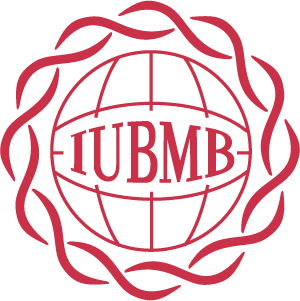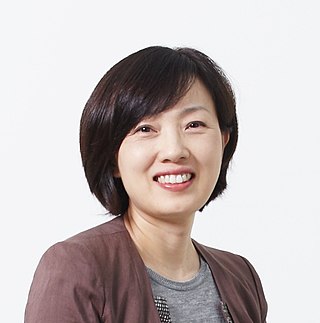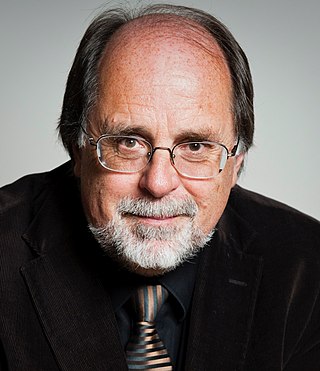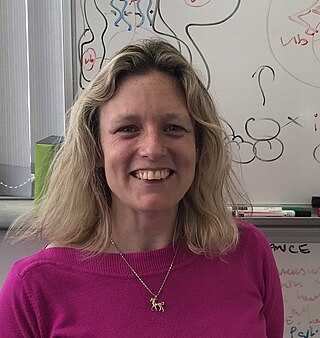Related Research Articles

The International Union of Biochemistry and Molecular Biology (IUBMB) is an international non-governmental organisation concerned with biochemistry and molecular biology. Formed in 1955 as the International Union of Biochemistry (IUB), the union has presently 79 member countries and regions. The Union is devoted to promoting research and education in biochemistry and molecular biology throughout the world, and gives particular attention to localities where the subject is still in its early development.

The European Molecular Biology Organization (EMBO) is a professional, non-profit organization of more than 1,800 life scientists. Its goal is to promote research in life science and enable international exchange between scientists. It co-funds courses, workshops and conferences, publishes five scientific journals and supports individual scientists. The organization was founded in 1964 and is a founding member of the Initiative for Science in Europe. As of 2022 the Director of EMBO is Fiona Watt, a stem cell researcher, professor at King's College London and a group leader at the European Molecular Biology Laboratory.

The American Society for Biochemistry and Molecular Biology (ASBMB) is a learned society that was founded on December 26, 1906, at a meeting organized by John Jacob Abel. The roots of the society were in the American Physiological Society, which had been formed some 20 years earlier. ASBMB is the US member of the International Union of Biochemistry and Molecular Biology.
Brigid L. M. Hogan FRS is a British developmental biologist noted for her contributions to mammalian development, stem cell research and transgenic technology and techniques. She is currently a Professor in the Department of Cell Biology at Duke University, Born in the UK, she became an American citizen in 2000.
Alan Ashworth, FRS is a British molecular biologist, noted for his work on genes involved in cancer susceptibility. He is currently the President of the UCSF Helen Diller Family Comprehensive Cancer Center at the University of California, San Francisco, a multidisciplinary research and clinical care organisation that is one of the largest cancer centres in the Western United States. He was previously CEO of the Institute of Cancer Research (ICR) in London.

Peter Csermely is a Hungarian biochemist and professor at Semmelweis University. His major fields of study are the adaptation and learning of complex networks. In 1995 Csermely launched a highly successful initiative, which provided research opportunities for more than 10,000 gifted high school students. In 2006 he established the Hungarian Talent Support Council. From 2009 the council built up a nationwide talent support network involving more than 200,000 people by 2018. Between 2012 and 2020 he was the president of the European Council for High Ability. From 2014 they started to establish a European Talent Support Network having more than 400 cooperating organizations from more than 50 countries of Europe and from other continents in 2020.

Laurence Harris Pearl FRS FMedSci is a British biochemist and structural biologist who is currently Professor of Structural Biology in the Genome Damage and Stability Centre and was Head of the School of Life Sciences at the University of Sussex.

V. Narry Kim is a South Korean biochemist and microbiologist, best known for her work on microRNA biogenesis. Her pioneering studies have laid the groundwork for the biology of microRNA and contributed to the improvement of RNA interference technologies.

Roger Sidney Goody is an English biochemist who served as director at the Max Planck Institute for Molecular Physiology in Dortmund from 1993 until 2013. Since 2013 he is Emeritus Director of the institute.

Sarah Amalia Teichmann is a German scientist who is head of cellular genetics at the Wellcome Sanger Institute and a visiting research group leader at the European Bioinformatics Institute (EMBL-EBI). She serves as director of research in the Cavendish Laboratory, at the University of Cambridge and a senior research fellow at Churchill College, Cambridge.
Mónica Bettencourt-Dias is a Portuguese biochemist and cellular biologist, who is the head of the Cell Cycle Regulation research group at the Instituto Gulbenkian de Ciência. Her research involves cell cycle regulation, for which she has been recognized as the recipient of the Pfizer Award for Basic Research, the Keith Porter Prize from the American Society for Cell Biology and the Eppendorf Young European Investigator Award. She was also selected as a 2009 European Molecular Biology Organization Young Investigator Fellow and inducted as a member of the EMBO in 2015. Mónica Bettencourt-Dias was appointed Director of Instituto Gulbenkian de Ciência in November, 2017.

Petra Schwille is a German professor and a researcher in the area of biophysics. Since 2011, she has been a director of the Department of Cellular and Molecular Biophysics at the Max Planck Institute for Biochemistry in Martinsried, Germany. She is known for her ground-laying work in the field of fluorescence cross-correlation spectroscopy, and numerous contributions on model membranes. Her current research focuses around bottom-up approaches to building an artificial cell within a broader area of synthetic biology. In 2010, Schwille received the Gottfried Wilhelm Leibniz Prize.
John Tooze FRS was a British research scientist, research administrator, author, science journalist, former executive director of EMBO/EMBC, director of research services at the Cancer Research UK London Research Institute and a vice president at The Rockefeller University.

FEBS Open Bio is a monthly peer-reviewed open access scientific journal covering research and education in molecular and cellular life sciences. It was established in 2011 and is published by John Wiley & Sons on behalf of the Federation of European Biochemical Societies (FEBS). According to the journal, papers are not to be excluded on the basis of lack of perceived importance.
Elisa Izaurralde was an Uruguayan biochemist and molecular biologist. She served as Director and Scientific Member of the Department of Biochemistry at the Max Planck Institute for Developmental Biology in Tübingen from 2005 until her death in 2018. In 2008, she was awarded the Gottfried Wilhelm Leibniz Prize, shared with Elena Conti, for "fundamental new insights into intracellular RNA transport and RNA metabolism". Together with Conti, she helped characterize proteins important for exporting mRNA out of the nucleus and later in her career she helped elucidate mechanisms of mRNA silencing, translational repression, and mRNA decay.

Ari Helenius is a Finnish emeritus professor of biochemistry who is known for his research in virology.

Helen Walden is an English structural biologist who received the Colworth medal from the Biochemical Society in 2015. She was awarded European Molecular Biology Organization (EMBO) membership in 2022. She is a Professor of Structural Biology at the University of Glasgow and has made significant contributions to the Ubiquitination field.

Nikolaus Rajewsky is a German system biologist at the Max-Delbrück-Center for Molecular Medicine (MDC) and at the Charité in Berlin. He founded and directs the “Berlin Institute for Medical Systems Biology”. He leads the Rajewsky lab, where he studies how RNA regulates gene expression. He also co-chairs LifeTime, a pan-European research initiative of more than 90 academic institutions and 70 companies, which aims to revolutionize healthcare by mapping, understanding, and targeting cells during disease progression. LifeTime integrates several technologies: single-cell multiomics, machine learning, and personalized disease models such as organoids. Rajewsky has received numerous awards and honors, including the most prestigious German award, the Gottfried Wilhelm Leibniz Prize, endowed with 2.5 million euros by the German Research Foundation (DFG).

M. Madan Babu is an Indian-American computational biologist and bioinformatician. He is the endowed chair in biological data science and director of the center of excellence for data-driven discovery at St. Jude Children’s Research Hospital. Previously, he served as a programme leader at the MRC Laboratory of Molecular Biology (LMB).
References
- ↑ "FEBS | About us". www.febs.org. Retrieved 2019-05-10.
- ↑ "FEBS | Our Activities". www.febs.org. Retrieved 2019-05-10.
- ↑ "FEBS | Awards | Our Activities". www.febs.org. Retrieved 2019-05-10.
- ↑ "FEBS | Our Publications". www.febs.org. Retrieved 2019-05-10.